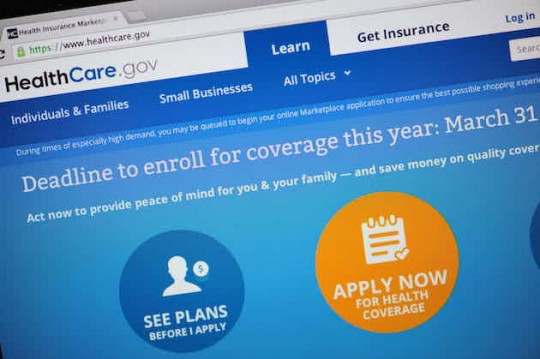The Patient Protection and Affordable Care Act (PPACA) marketplace approved coverage for fictitious applicants and granted about $30,000 in premium tax credits to those accounts, according to a Government Accountability Office (GAO) report.
The GAO first conducted a study because they were asked to "examine controls for application and enrollment for coverage through the federal Marketplace."
To do this, "GAO performed 18 undercover tests, 12 of which focused on phone or online applications," the report states. "During these tests, the Marketplace approved subsidized coverage under the Patient Protection and Affordable Care Act (PPACA) for 11 of the 12 fictitious GAO applicants for 2014. The GAO applicants obtained a total of about $30,000 in annual advance premium tax credits, plus eligibility for lower costs due at time of service."
The report was the topic of discussion at the Senate Committee on Finance hearing Thursday to examine Healthcare.gov’s enrollment controls.
"CMS accepted fabricated documentation with these applications without attempting to verify its authenticity and enrolled fake applicants while handing out thousands of dollars in premium tax subsidies," said committee chair Sen. Orrin Hatch (R., Utah). "Now, a year later, GAO has reported that nothing has changed and that, if anything, there are more problems. Worst of all, the administration has known about these problems for over a year now and has apparently no taken the necessary steps to rectify them."
"It seems obvious, at least to me, that the administration has been preoccupied with signing up as many applicants as possible, ignoring potential fraud and integrity issues along the way," Hatch said.
The revelation of the GAO investigation adds to the controversy that continues to surround the Affordable Care Act. Several recent studies have found that under the health care law, costs are rising and consumers face restricted choices.
"Whether they have health insurance through an employer or buy it on their own, Americans are paying more out-of-pocket for health care now than they did in the past decade," states the Commonwealth Fund, a private foundation aimed to promote a high performing health care system. Their survey asked consumers about their health care costs. "More than one of five 19-to-64 year old adults who were insured all year spent 5 percent or more of their income on out-of-pocket costs, not including premiums, and 13 percent spent 10 percent or more."
The Robert Wood Johnson Foundation (RWJF), a philanthropy dedicated to health, examined how narrow networks, or those that cover fewer than 25 percent of area physicians, have increased under the ACA. "By our measures, 41 percent of networks are small or x-small: 11 percent of networks are x-small, meaning they include less than 10 percent of office-based practicing physicians in the area and another 30 percent are small, including between 10 percent and 25 percent of physicians," an RWJF report said.
A New York Times article recently profiled a number of individuals who were negatively impacted because of Obamacare.
"President Obama promised that health insurance would greatly improve under the new health care law," said Ron Bonjean, a Republican strategist. "However, the opposite had occurred. Americans are experiencing higher premiums, deductibles and out-of-pocket costs while access-to-care and medicines have drastically deteriorated. All of this is happening while insurance companies are merging and profits are soaring."
